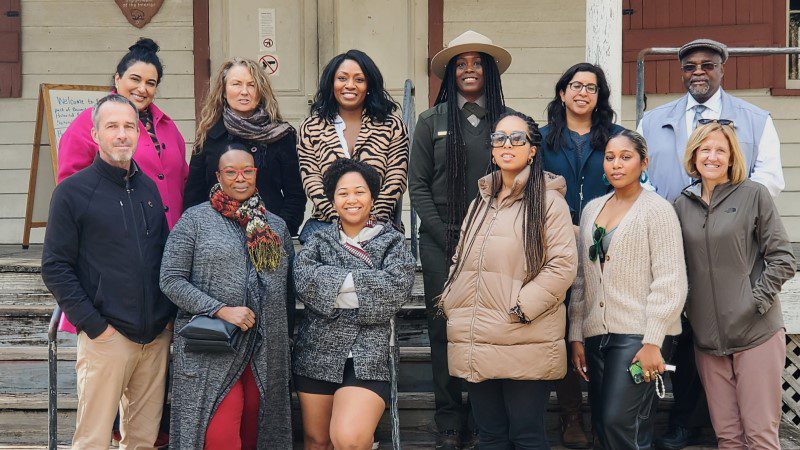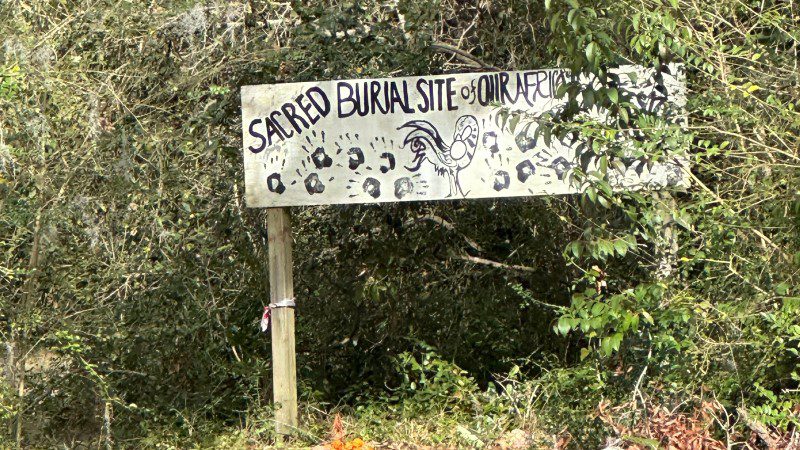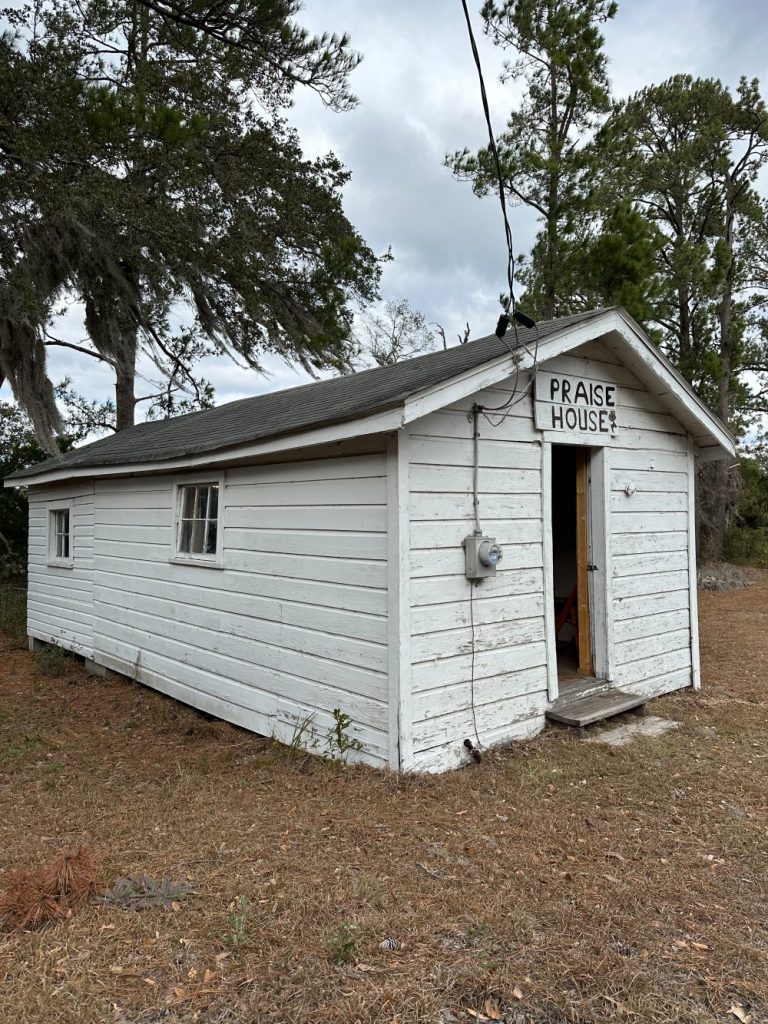“It’s what it’s, however what it’s is nice to know the place you come from.”
The assertion appears to reverberate by means of the small, hundred-year-old wood shack we sit in on St. Helena Island in South Carolina. I huddle on a wood bench on a cold winter afternoon, listening to native pastors inform us in regards to the historical past of reward homes on the island, just like the Mary Jenkins Neighborhood Reward Home the place we sit.
Initially segregated locations of worship throughout enslavement within the United States, reward homes ultimately took on the position of assembly locations, group centres and extra for native Black communities on the island. Their existence raises questions in regards to the position of faith, the event of segregated group establishments, the that means of progress and a lot extra.
And as we had been so deftly reminded that day, one in every of three days I spent experiencing Intrepid’s new Charleston to Savannah: Exploring Gullah Geechee Tradition journey, whereas the historical past of reward homes and Gullah Geechee communities is usually painful, it’s additionally very important to the story of the US.
Exploring Gullah Geechee heritage
Throughout our brief journey from Charleston, South Carolina, to Savannah, Georgia, we explored complicated questions associated to who will get to say and be included in tellings of American historical past by means of historic stops, native meals, musical performances and extra.
As we realized in regards to the historical past of the realm and the Gullah Geechee individuals, descendants of West and Central Africans enslaved and delivered to the decrease Atlantic states who developed a singular tradition and language, we got here to grasp a foundational a part of the story of the US: there isn’t any US as we all know it with out colonisation and slavery, simply as there isn’t any common American tradition with out Black tradition.
As a lot as I loved myself and thought many instances over that everybody ought to have the possibility to make a journey like this, it’s inconceivable to disconnect this expertise from surging debate within the US about precisely how a lot Black historical past is appropriate to show. As a result of whereas there was a lot magnificence, ingenuity and group packed into our itinerary, this journey additionally raises questions with out solutions. Simply as I believe the concept of educating Black historical past raises for others.


Framing the controversy
Is it actually good to know the place you come from? For some purpose, that’s a contentious query within the US.
I’ve watched because the nation I used to be born and raised in debates my cultural historical past as “indoctrination”, a part of an “agenda”, and worse. The Florida Division of Training lately rejected an Superior Placement African American Research course, an interdisciplinary course that spans subjects starting from the “Origins of the African Diaspora” to “Black Ladies’s Rights and Training”. Educators are battling mother and father, legal guidelines and even different academics who search to bar Black historical past or the educating of any social or historic subjects that may make college students “uncomfortable.” Name it a tradition conflict, name it cultural backlash, name it no matter you need, however many societal debates of the right here and now are deeply invested in shaping how we consider, talk about and bear in mind the previous.
This nation has but to totally reckon with the truth that its historical past consists of torture, human trafficking and enslavement, colonisation, segregation, lynchings, homicide and extra. As a result of if we settle for that painful actuality, what does it say about American exceptionalism and the American dream? What does it say in regards to the “melting pot” that’s so typically hailed as an emblem of the US’s acceptance of range?
For me, this cognitive dissonance is an inescapable a part of the Black expertise within the US: to be without delay foundational to the event of American society and tradition but debated as in case your historical past is by some means tainted.
Journey as an alternate path to schooling
When faculties received’t train it, we’re left to coach ourselves elsewhere. I actually did. My public faculty schooling had sparse classes on Black historical past. What we did be taught centered on just some main figures, resembling Rosa Parks and Dr. Martin Luther King Jr., and emphasised their grace and magnanimity. The Black American expertise was offered as if there have been however a couple of small hiccups, by means of no fault of anybody’s, that had been totally overcome by means of tune and religion. That is an instance of the “snug” narrative that college programs may lead college students to consider in. One which I, at one level, actually used to border the world round me.
This sanitised model of American historical past that so many are preventing to protect, was jarringly at odds with the richness of our experiences in South Carolina and Georgia with Intrepid. Our journey jogged my memory of the facility of journey to problem us and reshape our perceptions.
I don’t say this to counsel that journey forces us to study totally different views and cultures. It’s not a magic balm that permits us to flee from ourselves, our beliefs, our fears or societal pressures. To some extent, I deeply dislike many journey narratives due to that simplistic framing. Journey may be extractive and damaging to native communities, and we, as travellers, can simply replicate our biases and worst behaviours in a brand new place. But, I do assume journey can permit us to reframe how we view ourselves.
Faculty classes that nearly left out enslavement and its brutal, inhumane underpinnings totally couldn’t stand the take a look at of touring the Sea Islands and studying about communities the place some households are nonetheless dwelling on the identical land that their foreparents lived and laboured on as enslaved individuals.
Imagery of manicured plantations, each the figurative one I realized about at school and the very actual one we handed on our tour in South Carolina, withered subsequent to a big hand-painted wood signal whose black block letters shone on a white background: “Sacred burial web site of our African ancestors”. It marks the grave web site of an estimated 300 enslaved individuals who had as soon as toiled on the grounds of the imposing, white-pillared plantation throughout the street.


As we toured Helena Island after which Pin Level Heritage Museum exterior of Savannah, we realized about Gullah Geechee communities alongside the coast, based by previously enslaved individuals who used no matter leverage they might entry after enslavement to buy a property. Typically solely capable of buy land in areas as soon as thought-about undesirable, those self same communities now face pressures that threaten their tradition and land rights. Builders, rising taxes, eminent area and different forces now appear to squeeze them from all sides.
What if this was the historical past taught in faculties? One by which enslaved peoples, who introduced immense abilities and experience to the US, helped construct its economic system and establishments by means of horrific and inhumane circumstances after which shaped an integral a part of the nationwide tradition. How would that be reconciled with the present-day actuality that Black Individuals proceed to face widespread and systemic discrimination, assaults on our cultural practices and land, and debates in regards to the suitability of our historical past for school rooms? What would that say about our progress as a nation? How may it shake the foundations of our establishments?
These are the questions that some faculty boards, mother and father and legislators don’t need college students asking. They’re questions that don’t have straightforward solutions, whether or not they’re requested in a classroom or out travelling. They’re questions that seemingly result in solely extra questions. However that doesn’t imply they’re not value asking.
Anela travelled as a visitor of Intrepid to get a style of our Charleston to Savannah: Exploring Gullah Geechee Tradition journey. Observe her on Instagram at @feedthemalik.




